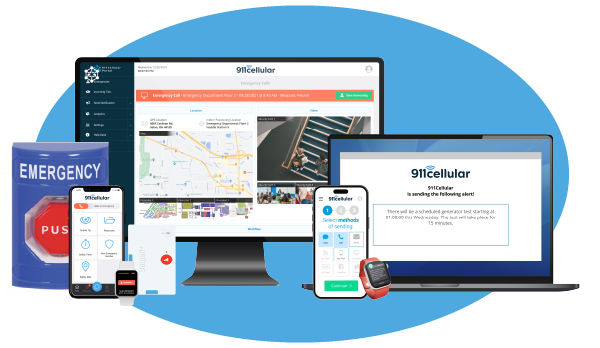The hospitality industry focuses on creating safe and welcoming environments for guests, but it is equally essential to ensure the safety of workers behind the scenes. To address increasing safety concerns for both staff and guests, several states and cities across the U.S. are implementing laws requiring hotels to provide panic buttons. This measure is critical for safeguarding both employees and patrons.
The Rise in Popularity of Panic Buttons for Hospitality Staff
Violence against hospitality workers has surged, with some studies indicating that more than 65% of female and 50% of male hospitality workers experience mistreatment (Sherwyn and Wagner, 2018). The 5-Star Promise Initiative launched by the American Hotel & Lodging Association (AHLA) garnered even more attention for the issue. Among its various components aimed at enhancing hotel worker safety is the recommendation to equip staff with panic buttons, enabling them to quickly call for help in emergencies. In response, several states and local governments have started enacting variations of the 5-Star Promise Initiative.
Hotel Panic Button Laws in the United States
Several states and cities have implemented specific laws requiring hotels to provide panic buttons to their employees. Below is an overview of some key regulations:
State-Wide Mandates:
Illinois: Hotel and Casino Employee Safety Act
- Enacted: July 1, 2020
- Requires hotels with 100+ rooms to provide panic buttons.
- Includes protections against employer retaliation for employees who use the devices appropriately.
New Jersey: The Panic Button Law
- Enacted: January 1, 2020
- Mandates panic buttons in hotels with 100+ rooms.
- Fines range from $5,000 to $10,000 for non-compliance.
Washington: Senate Bill 5258
- Enacted: January 1, 2020
- Requires panic buttons for all hotels with 60+ rooms.
- Smaller hotels had until January 2021 to comply.
Local Mandates:
Miami Beach, FL: Panic Button Ordinance
- Enacted: August 2019
- Requires panic buttons for employees working alone in guest rooms or restrooms.
- Fines increase with repeated violations, starting at $500.
Los Angeles, CA: Hotel Worker Protection Ordinance
- Enacted: August 2022
- Mandates personal security devices for employees working alone.
- Specifies employer responsibilities for rapid response.
Oakland, CA: Measure Z
- Enacted: November 2018
- Includes panic buttons, increased minimum wage, and workload restrictions for hotels with 50+ rooms.
These laws share a common goal: ensuring that workers have access to critical incident management tools that provide peace of mind and protection in their daily tasks.
The Future of Hotel Worker Safety
Adopting hotel panic button laws highlights the hospitality industry’s commitment to safety. However, compliance is just the initial step. Hotels must continuously evaluate and improve their safety technologies and critical incident management strategies to address evolving threats.
As the landscape of hotel safety continues to evolve, one thing remains clear: panic buttons are not merely tools; they are lifelines that reflect the industry’s dedication to protecting its most valuable asset—its people.
Are you prepared to meet the latest hotel panic button regulations?
At 911Cellular, we specialize in panic button solutions that offer robust and user-friendly options for the hospitality industry. Our systems reduce response times and save lives.
Contact us to learn how our NIST-tested, WiFi-compatible solutions can help your organization stay compliant and provide peace of mind for your staff and guests.







